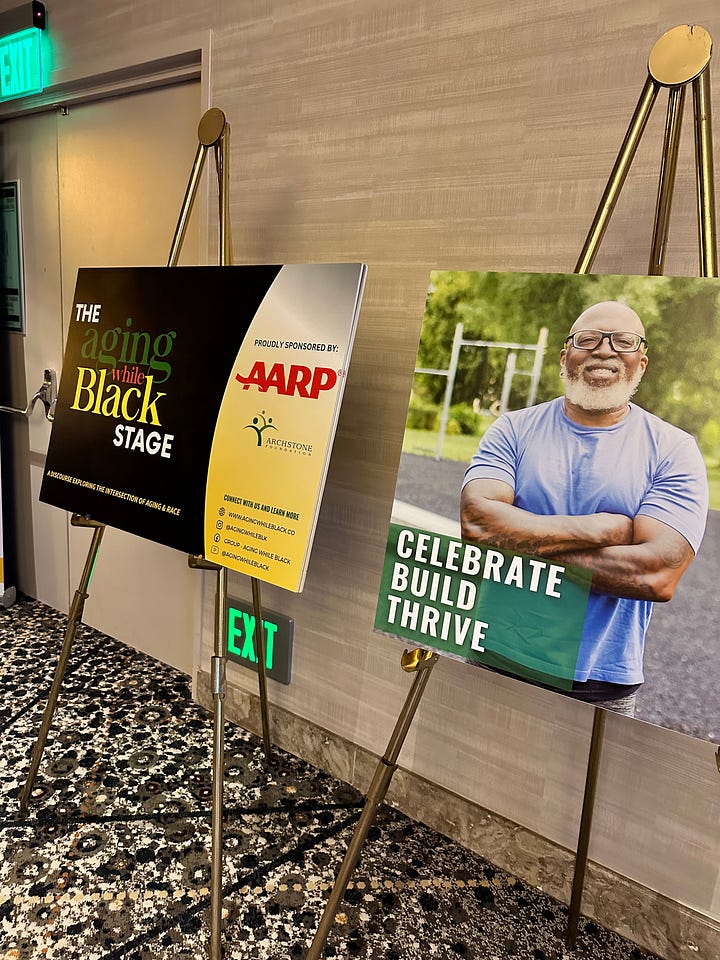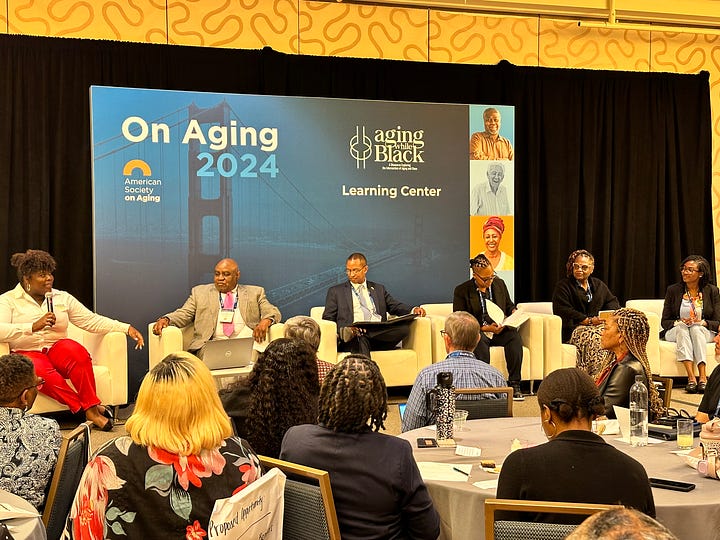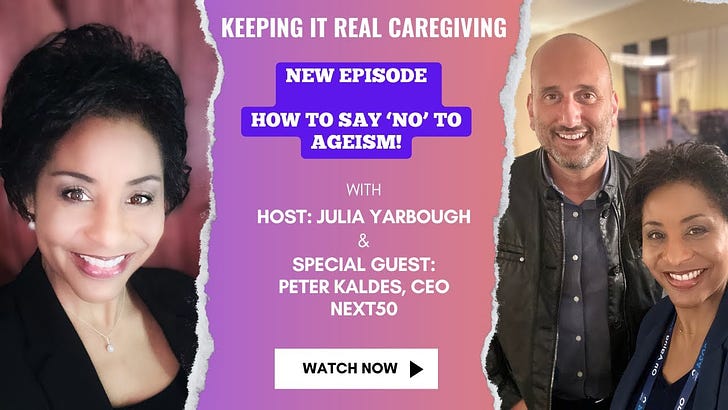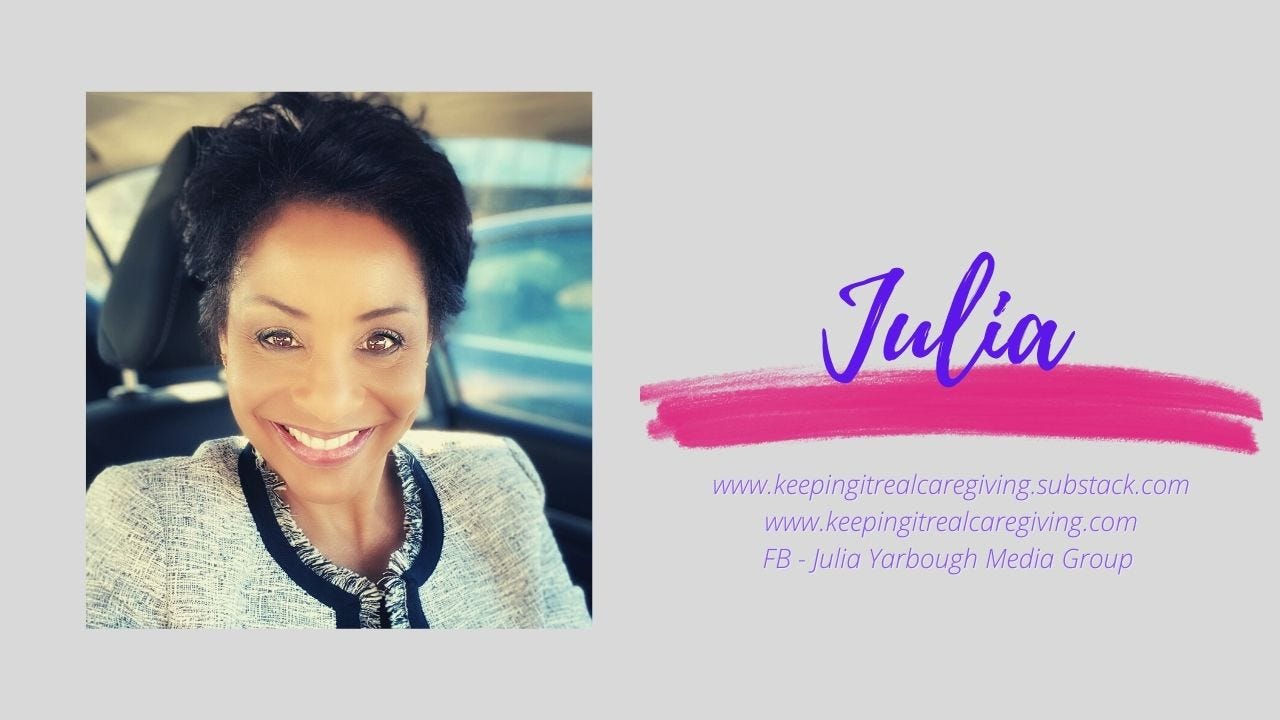Being 80 living in today's version of how we treat older adults? Not an option!
How one aging industry entrepreneur is working to reshape the model: By Julia Yarbough
NEW VIDEO!!
Spend even a short amount of time with Peter Kaldes, CEO of Next50, and you quickly get the sense he is a man with a passion for implementing change, helping others, and getting things done! His latest mission? To drive change in how our society views aging.
“We live in an ageist society. It is a society that does not value us as we age, and I don’t want to live in that world when I get to 80.”
*KIRC recently attended the American Society on Aging On Aging 2024 Conference in San Francisco. This is the first in a series of articles and topics from our coverage of the event.





Keeping It REAL Caregiving (me - Julia Yarbough) recently had the chance to sit down with Kaldes during the 2024 American Society on Aging On Aging Conference in San Francisco, California.
If the name sounds familiar, it is because Kaldes takes on this new role after having previously served as the CEO of the American Society on Aging. He played a large role in the creation of the ASA Rise Fellowship Program, which KIRC completed in 2022.
Kaldes says his role with Next50 allows him to continue building stronger relationships across the aging sector, while also creating an improved aging future for all of us.
“At my core, I love being an entrepreneur, I love trying new things, being bold, getting things wrong, but also having some successes,” Kaldes told me. “I don’t do well when faced with stodgy matrixes and bureaucracy. I know this may be a bit overused, but I am a change maker.”
What is Next50 and what does Kaldes do?
“I am both a trustee and the CEO of the organization. That means I’m responsible for managing the operations, the strategy, the grant making, and managing the financial assets of the organization.”
Next 50 is an endowment, which means the visionary role and leadership for Kaldes is now slightly different than having been at the helm of a membership-driven organization.
“You can lead by example, you can lead through thought leadership, you can nudge the membership towards tackling the issues we have in aging. But it is quite different when you are leading a national foundation that has capital behind it. Put differently, Next 50 has the money to actually try to make change happen.”
Changing the future
I launched Keeping It REAL Caregiving with the goal of sharing practical information and helping to educate other caregivers. KIRC started shortly after the passing of my elderly mother.
Since then, I have taken part in countless numbers of meetings and webinars, discussing the needs of caregivers, and how to create improved support. There is some progress, but quite often I hear the same conversations over and over.
I asked Kaldes, ‘If we know what the problems are and how to address them, why does it often feel nothing changes?’
He suggests the best solutions may come from individuals and community-based organizations to drive ground-level change.
“There are a couple of reasons. One, let’s look at government. Government isn’t providing the right incentives to change behaviors to get to where we have to go.
To your point, yes, we talk about the same things all the time and if only we had more money to do x, y, or z. Yet government refuses to invest in these new ideas. For instance, the Older Americans Act, which is a foundational statute which funds a lot of very basic human services for seniors. It has not really changed all that much in 60 years.”
Kaldes points out (and proposes thought-provoking questions) that there have been some innovations aimed at staying current, but more could be done to invest in technology to address known issues and extend the government’s focus beyond only health.
“Whether that is how you reduce loneliness at home - guess what? Technology can help. We all need jobs for longer, we all need affordable housing for longer, we all need a sense of purpose and belonging for longer. What is the role of government there? To sit back and keep the status quo? Or can it actually incentivize and drive innovation and change?”
Kaldes says that is where Next50 comes in; to provide solutions to some of these issues.
I asked Kaldes about his goals. For starters, he says the organization will not fund the kinds of programs other funders have traditionally taken on.
“For instance, it is really expensive to get older in this country. So as a foundation we have asked ourselves 'What can we do to make it less expensive?’ Can we tackle job creation, can we tackle housing issues, can we help people age in place affordably, can we tackle some systemic issues like ageism and how can we get the media to change the way they portray aging adults.”
Kaldes says these big-picture goals are tied to economic opportunity, with a vision to create a world that values aging. Something he admits, will not be easy.
“We are not going to be able to do it alone. But if we don’t value aging, if that is not our starting point, then nothing else is going to matter.”
Collaboration and partnerships
Kaldes has already been hard at work putting change into motion. One of the first major partnerships Next50 has embarked upon, is with the American Society on Aging, launching the On Aging Institute, committing nearly $1 million in support over the institute’s first three years.
“For the last 70 years we know the ASA has been an important resource. But the issues have become more complicated, more diverse, with less funding. So we collaborated with ASA to launch the On Aging Institute. What we wanted to do was to invest in creating a place where today’s issues are supported. Like advancing equity, like adopting technology for greater impact, and creating organizational resiliency for non-profits.”
Plan and Prepare
Keeping It REAL Caregiving has long advocated for a level of personal responsibility for educating and preparing ourselves for growing older. I like to call it situational awareness, similar to preparing for emergency situations. Kaldes agrees.
“I love that analogy because lately I have been thinking about how aging is turning into a national security issue. We have to be better prepared as a society. On a personal level, individually, we have to stop being in denial that we are aging."
Kaldes believes that means we have to take care of ourselves, including: honestly taking stock of our resources, taking care of our bodies, not denying that we are getting older, not being scared of seeing the wrinkles, spending money on nutrition, and identifying a community of friends and family.
“These are all things that science has shown will provide for a healthier life. Unfortunately, we are not trained to do that. Our education system stops preparing us for life after 21, and for next 60-70 years you are figuring it out on your own. I think there is tremendous opportunity for us to take on more personal responsibility and not lie to ourselves about the fact that we are aging.”
Keeping It REAL Caregiving would like to thank Peter Kaldes and the entire Next50 team for making this interview possible!
*Learn more about the American Society on Aging
*Like the work Keeping It REAL Caregiving is creating? Consider supporting the effort by sharing with others or upgrading to a paid subscription!
Until next time~
Julia






